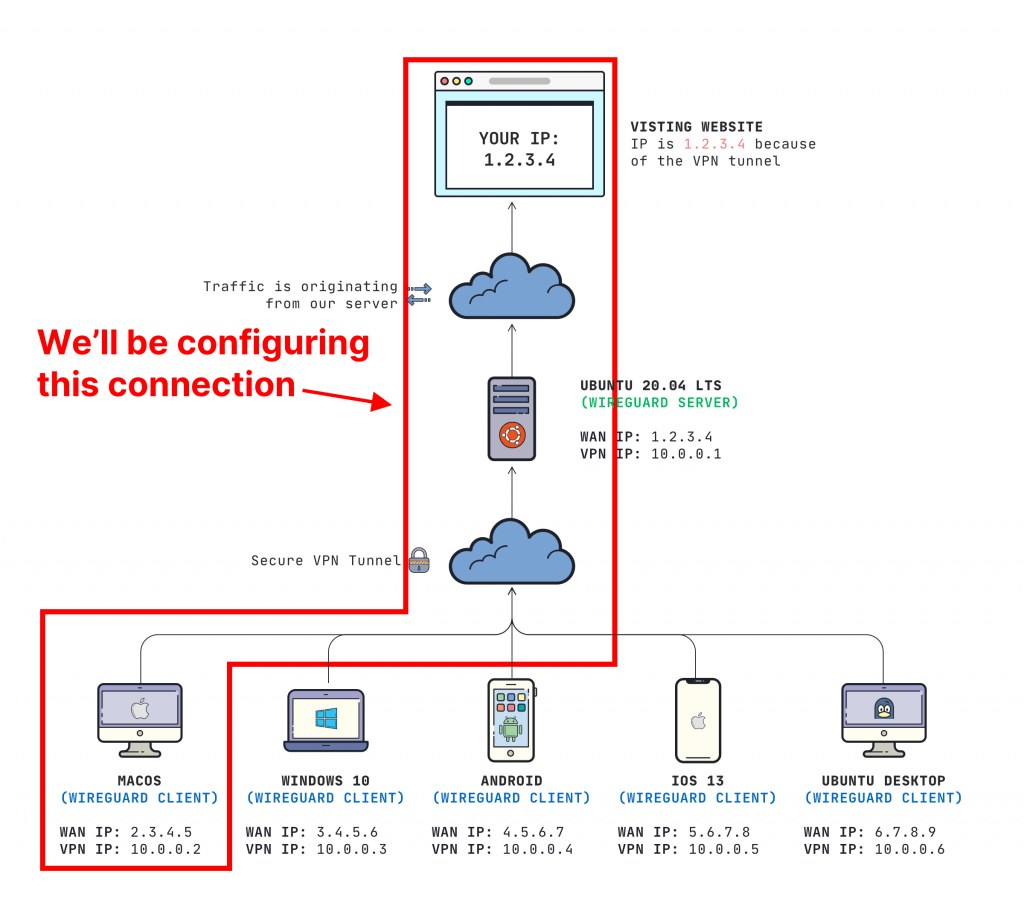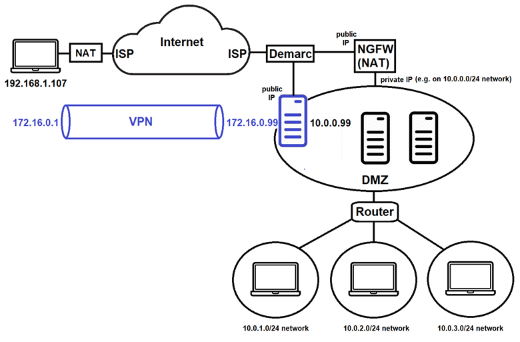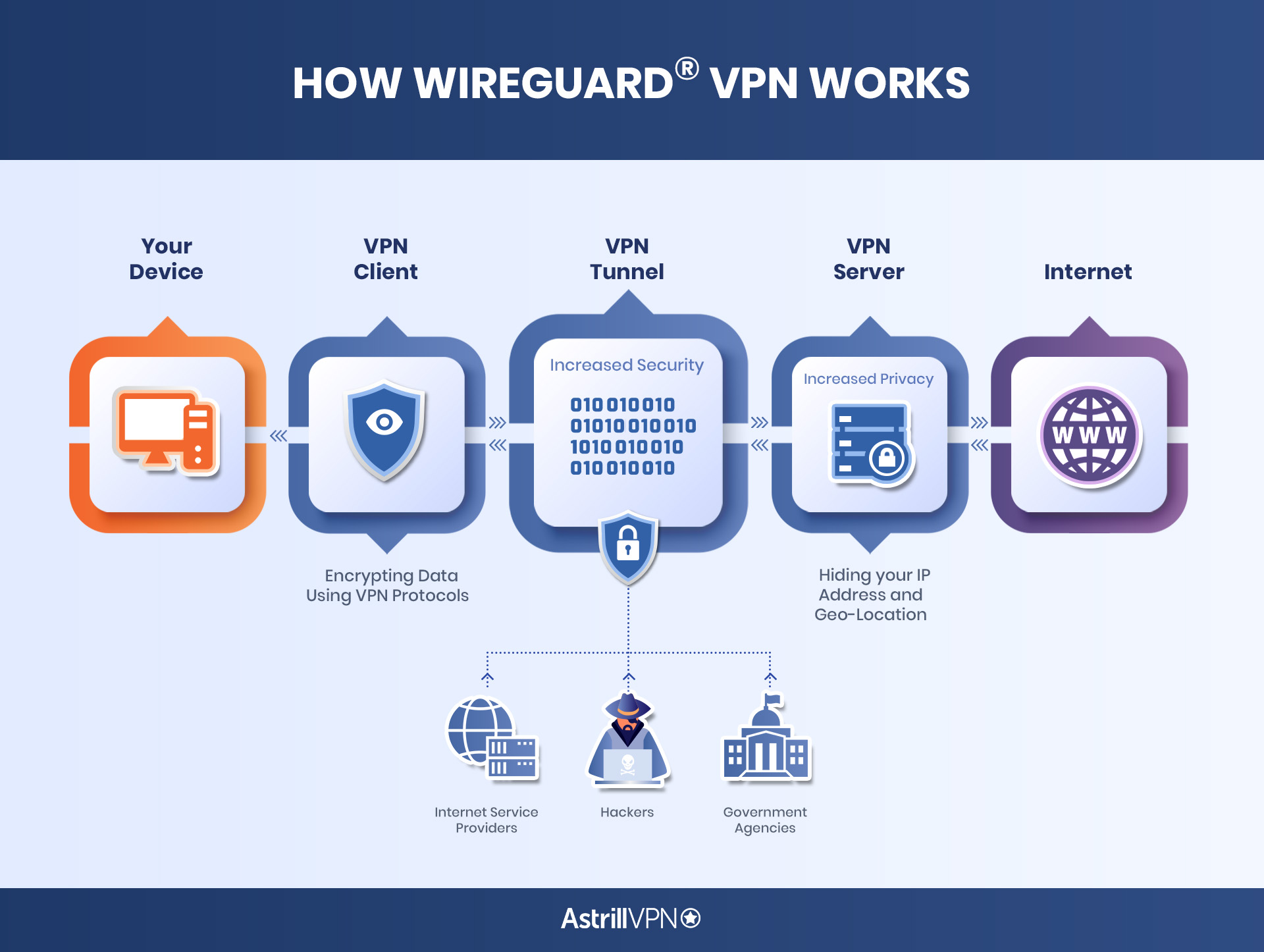Featured
Table of Contents
Wireguard Vpn Protocol Explained
One of the most popular VPN services,, was the very first of the larger VPNs to use Wire, Guard's procedure. Nord, VPN believed so extremely of Wire, Guard that it took things further and customized the open-source offering to create Nord, Lynx, its tailored protocol that provides one of the fastest VPN connections.
When comparing Open, VPN and Wire, Guard, it's important to consider the strength of encryption however also speed, and versatility in terms of how quickly it can be integrated into different networks. is an open source protocol that was developed in 2001, and in spite of its age most encryption tools support it, therefore it has actually become the most popular of all VPN options on the market.

These are all procedures that develop an encrypted tunnel between an individual's computer and a resource that they are connected to, like an application or a server somewhere. This keeps the information being transferred in between them personal. How do I setup Wire, Guard? Setting up a Wire, Guard application is simple.
What Is Wireguard?

This includes typing in the IP address, port number and other information and then activating the client. What's much better: IPSec vs Wire, Guard? All of it depends upon the network environment you are using. There are lots of reports that Wire, Guard provides the same level of encryption while making connections much faster, however some business may prefer IPSec due to the kind of cryptography algorithms it supports.
There are numerous complimentary VPNs that support Wire, Guard, and it is also consisted of by default in the Linux kernel, so those who are proficient at shows can establish these types of encrypted connections merely by typing in the command line. Wire, Guard is also supported by subscription-based security products.

From then on all connections will be tunneled utilizing Wire, Guard instead of alternative protocols. Is Wire, Guard safe to use? Though it is reasonably brand-new on the scene, Wire, Guard's tiny codebase has been completely tested and investigated, and it's inclusion on the Linux kernel is a massive vote of confidence in its security.
Wireguard Vpn — Is It Still Private, Secure, And Free In ...

Most VPN options that exist today were developed a long period of time back, so they're rather sluggish and are overly engineered. Get in Wire, Guard, a job that puts security and simplicity first. Security scientist and kernel developer Jason Donenfeld understood for Wire, Guard in 2017 while in need of a stealthy traffic tunneling solution that could be used during penetration screening engagements.
So, he set out to produce an entirely new VPN protocol and execution that would avoid some of the style choices that changed other tunneling innovations into beast tasks with substantial code bases and many knobs and switches. For one, the Wire, Guard protocol does away with cryptographic agility-- the concept of using choices among various file encryption, essential exchange and hashing algorithms-- as this has actually resulted in insecure releases with other technologies.
The procedure is likewise sneaky, as it does not react to any packets from peers it does not recognize, so a network scan will not reveal that Wire, Guard is operating on a device. what is wireguard protocol and how does it work?. The connection in between peers, which can act as both clients and servers at the same time, go silent when there's no exchange of information.
Wireguard Vpn Protocol Explained
The main Wire, Guard implementation is for Linux and is available in the type of a kernel module. The code is planned to be quickly auditable, with Donenfeld stating it can be checked out in an afternoon. Compared to Open, VPN which has over 100,000 lines of code and depends on Open, SSL-- another big codebase-- the Wire, Guard kernel module has around 4,000 lines of code and the crypto code is constructed into it.
Aside from some community-supported Android firmware tasks that incorporated the Wire, Guard kernel module, the non-Linux Wire, Guard implementations run in userspace and do not take advantage of the very same performance as the kernel implementation. That said, they still manage to match or surpass Open, VPN. The Wire, Guard kernel module is offered in the bundle repositories of all major Linux distributions and even some customized ones.

6, launched on March 29, 2020, Wire, Guard is one of the innovations that are integrated in by default. This is also thought about Wire, Guard's very first stable release, or version 1. 0.0."The last a number of weeks of 5. 6 development and stabilization have been amazing, with our codebase undergoing a fast security audit, and some real headway in terms of getting into distributions," Donenfeld stated in the release announcement.
Wireguard Vpn Explained
Donenfeld accepted the compromise and was primarily satisfied with the result."It's not called 'Zinc' any more, and a few of the design decisions I liked aren't there, however I think the lion's share of what we wanted exists, and a few other pieces should be possible to upstream one at a time," he stated in a message to the Wire, Guard job's mailing list at the time.
From then on, things moved relatively fast, with several reviews, bug fixes and changes in the course of a couple of months before the steady release. Windows doesn't provide a native TUN virtual gadget and while some chauffeurs exist to achieve this from jobs such as Open, VPN or Soft, Ether, they were written a long time ago and have different problems.
Even prior to reaching a stable variation Wire, Guard was currently being utilized in production. Some commercial VPN provider provide Wire, Guard servers and there are continuous efforts to develop mesh networking tools around it. It is not yet "enterprise ready" and it's uncertain if it will ever be since its developers are reluctant to add brand-new functions that are only helpful to a subset of users or cover edge cases since that's how other tasks ended up being extremely complicated.
What Is Wireguard?
For instance, business require to release and configure new software application on a a great deal of computers in an automatic way, but the distribution of public secrets among peers and essential management are not covered by the Wire, Guard job itself and will need to be implemented as a separate tool.
Wire, Guard, that makes it more available than some proprietary technologies. Its open source likewise makes it a lot more friendly when setting it up on gadgets that don't support Wire, Guard natively. Wire, Guard has numerous. Being the most current VPN protocol does not come at a rate.
Wire, Guard has to be an alternative without any shadows of doubt. Wire, Guard works by on the VPN servers so that the information packets wouldn't be blended among its users. In principle, this can significantly threaten the user's personal privacy as this is one of the crucial vulnerabilities that a trespasser could target.
Latest Posts
7 Best Vpns For Business In 2023 And Some To Avoid
Best Phone Vpn In 2023
Vpn Not Working On Windows - Common Errors & Fixes